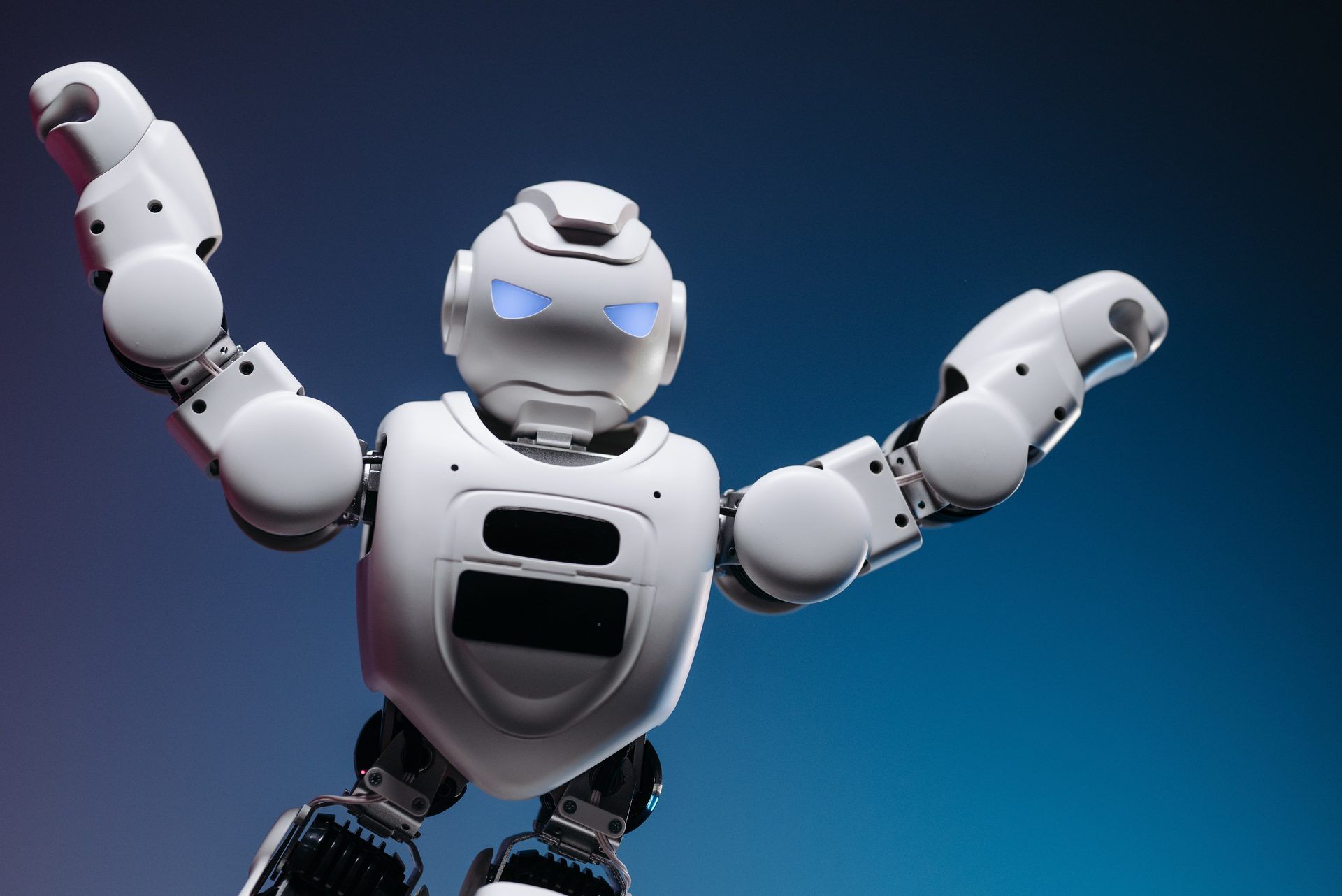Let’s find out about the cons of artificial intelligence to understand if an error cause chaos or devastation. The development and growth of humanity depend heavily on AI technology, and there is no doubt about that. Are you scared of AI jargon? We have already created a detailed AI glossary for the most commonly used artificial intelligence terms and explained the basics of artificial intelligence as well as the risks and benefits of artificial intelligence for organizations and others. So, it’s time to explore the cons of artificial intelligence. So you can be prepared when things don’t work out.
The cons of artificial intelligence: A detailed look
The possible impact of artificial intelligence on society and our daily lives is a topic that has to be discussed by everyone as it becomes more and more prevalent in daily life. In addition to its social effects, the use of AI technologies also has various challenges and disadvantages If we account all the crazy ideas too, the list should be like this:
- Creating unemployment
- High costs to implement and use
- AI bias
- Making humans lazy
- Being emotionless
- Its environmental impact
- Lack of regulations
- Security problems
- Enormous need for data
- Risk of overtaking humanity
- No improvement with experience (yet)
- Lacking creativity
- Disinformation
- Big Tech domination
Today, we tend to conceive of technology as having superpowers that can either fix every problem we have now or will face in the future—or, conversely, as having some of the worst problems we could have ever imagined.
Even though such predictions are way too early and computers are still a long way from becoming the primary danger to our future well-being, it is important to note that artificial intelligence is not without drawbacks.

Is artificial intelligence better than human intelligence? Let’s explore.
Unemployment
In addition to creating jobs, artificial intelligence may also result in some job losses. Job losses are one of the artificial intelligence’s biggest drawbacks. The theory put forth by experts that computers would eventually surpass humans in many fields is a prominent one.

The truth is that this has already begun to happen as computers have become commonplace in businesses, including financial institutions, retail outlets, newspapers, and factories.
What is the role of artificial intelligence in manufacturing?
Although A.I. currently handles simple, routine jobs like managing assembly lines, sorting and analyzing data, etc., it is anticipated that shortly it will handle much more complex and important procedures like designing.
Will AI replace designers?: Midjourney AI art generator & Dall-E 2
High costs
If you are a customer, AI tools are rarely necessary for purchase. However, if you want to utilize AI in business, there is a completely different scenario. It is one of the cons of artificial intelligence that heavily affect businesses.
Given the intricacy of engineering in creating one, setting up AI-based equipment, computers, etc., involves enormous costs. Additionally, the outrageous costs don’t end there because repairs and maintenance can cost thousands of dollars.
Do you know how much Apple spent to get SIRI, its virtual personal assistant? A staggering $200 million was spent on the software’s acquisition.
There are affordable AI solutions available for every organization, no doubt about it. However, developing or implementing some of the most sophisticated systems or specialized machine learning models can be very expensive.
Check out the 15 real-life examples of machine learning
AI bias
Since humans create AI algorithms, anyone who purposely or unintentionally inserts bias into the algorithm may do so.
AI algorithms will yield biased results if they were developed with a bias or if the data used as training sets for the algorithms was biased. This reality may have unforeseen repercussions, similar to those brought on by discriminating hiring practices and Microsoft’s racist Twitter chatbot. Companies must appropriately design and train AI algorithms as they are created.
Check out how is artificial intelligence changing the recruiting process
Making humans lazy
With its applications automating most jobs, AI is causing humans to become lazy. Humans have a propensity to become addicted to these creations, which could be problematic for coming generations. It is one of the cons of artificial intelligence that heavily affect the future.

Emotionless (The need for human touch)
Without question, machines perform tasks considerably more effectively than humans, but they cannot replace the interpersonal relationships that strengthen a team.
The ability to bond with people, which is crucial for team management, cannot be replicated by machines.
Machines can only complete tasks they have been developed or programmed; if they are asked to complete anything else, they frequently fail or provide useless results, which can have significant negative effects. That makes the need for human touch.
Environmental impact
Even though AI has the potential to benefit the environment, for instance, by creating smart grids that can match energy demand or smart, low-carbon cities, however, one of the drawbacks of artificial intelligence is today that, due to its high energy consumption, it can also seriously harm the environment.
According to a study, training a single AI model generates 300,000 kg of CO2 emissions, around 125 roundtrip flights from New York City to Beijing, or five times the lifetime emissions of a typical (American) car.
Regulations
While technology has made the globe smaller than ever, this also implies that new laws and regulations governing AI technology will need to be agreed upon among various countries to permit secure and productive cross-border interactions.
Since we are no longer in a bubble, it is very easy for one country’s artificial intelligence policies to harm others.
The environmental impact of AI makes regulations vital for a sustainable future
Security
Artificial intelligence accelerates progress and, in many circumstances, surpasses our capacity for comprehension as humans.

Automation makes it more difficult for humans to detect evil acts like phishing, introducing viruses into software, and manipulating AI systems for personal gain due to how these systems see the world. Are you wonder what are bad actors called in cybersecurity? We have already explained it.
Check out the cybersecurity best practices in 2022
AI terrorism
There might be new AI-enabled forms of terrorism to contend with, such as the development of autonomous drones and robotic swarms, remote attacks, or disease delivery by nanorobots.
Enormous data need
AI can only be as effective as the quantity and caliber of its data. Your phone’s newest AI software will give subpar results if it lacks sufficient data.
How are artificial intelligence and information technology related?
Business is the same way. Many businesses require a small amount of data before they can use any custom AI models or AI tools.
Furthermore, the data must be accurate and pure. A lot of effort and money may be needed to make internal data AI-ready.
The only exceptions are AI programs that make use of external datasets. Many of these currently exist and either collect data from web sources using proprietary algorithms or use a vendor-owned proprietary dataset.
A crucial first step is figuring out what data you need for an AI solution. And figuring this out isn’t always simple or quick.
To clean and organize data for usage with AI, qualified data scientists are frequently required, either full-time or consulting.
Risk of overtaking humanity
A situation like this has inspired many Hollywood productions. Although it is overly dramatic to think that computers will turn against us, it makes more sense to be afraid of scenarios in which humans cannot understand the motivations behind machines’ decisions.

No improvement with experience
Artificial intelligence cannot learn from experience; if given the same command again, it will complete the same task. It may cause wear and tear over time. It has a large amount of data stored, but it cannot be accessed or utilized in the same way human intellect can.
Lacking creativity
Human creativity is unmatched by that of machines. Artificial intelligence can make learning from data easier, but it can’t make machines exactly match human intelligence and abilities. Depending on the sophistication of the creator’s analytics, an AI-powered machine’s output will vary in accuracy.
The intelligence and creativity of AI-based machines depend on how intelligently and creatively humans develop algorithms, even though AI can work in conjunction with other technologies such as IoT, Big Data, improved sensors, and many more to provide the greatest automation. Therefore, AI is constrained by rules and algorithms and cannot exhibit human-level creativity.
Disinformation
Another drawback of artificial intelligence that we have already noticed is a surge in misinformation. Yes, we are going to talk about deepfakes and bots.
Future targeted misinformation tactics will increasingly incorporate deepfakes, endangering our democratic processes and polarizing society. Online bots, which can create phony texts such as news stories modified to push fraudulent ideas or tweets, contribute to these misinformation concerns.
Domination of Big Tech companies
Big Tech firms are in control the AI. Companies taking up AI businesses globally is risky because it will greatly influence the course AI technology takes. Due to their dominance in search, social media, online shopping, and app stores, these businesses have almost complete monopolies on user data.
They are increasingly serving as the main providers of AI to the rest of the market. Such an imbalance of power puts democratically elected governments at risk of being ruled by powerful tech corporations.
Let’s look at some sectors and determine AI’s negative impact.
Check out how is artificial intelligence used in the military
Disadvantages of artificial intelligence in healthcare (Comparison with advantages)
These are the advantages and disadvantages of artificial intelligence in healthcare:
| Advantages of AI in healthcare | Disadvantages of AI in healthcare |
| Reduction in human error | Implementation costs |
| Real-time data | Unemployment |
| Available 24×7 | Needs human touch |
| Training and operation cost reduction | No emotions |
| Digital assistance | Misdiagnosis |
| Reduces physician stress | Misuse leading to threats |
| Saves time and resources | Lacking out-of-box thinking |
| Speed up decision-making |

Check out the effect of artificial intelligence in developing countries
Disadvantages of artificial intelligence in education (Comparison with advantages)
These are the advantages and disadvantages of artificial intelligence in education:
| Advantages of AI in education | Disadvantages of AI in education |
| Organized information | Lack of human touch |
| Customized teaching | Unemployment of teachers |
| Immersive learning | Implementation costs |
| Adaptive learning | AI addiction |
| Intelligent moderation | Data need |
| Virtual reality learning | Decreases creativity |
| Un-biased grading | Maintenance problems |
| 7/24 assistant | |
| Improving course quality | |
| Better scheduling | |
| Less human error |

Disadvantages of artificial intelligence in accounting (Comparison with advantages)
These are the advantages and disadvantages of artificial intelligence in accounting:
| Advantages of AI in accounting | Disadvantages of AI in accounting |
| Better insight | Finding the right algorithm |
| Faster | Unemployment of accounters |
| AI decreases the requirement for human experts | Implementation costs |
| Eliminating fraud | Data need |
| Handle large data | Privacy and ethics |
| 7/24 assistant | |
| Less human error |

Disadvantages of artificial intelligence in business (Comparison with advantages)
These are the advantages and disadvantages of artificial intelligence in business:
| Advantages of AI in business | Disadvantages of AI in business |
| Reduction in human error | Implementation costs |
| Real-time data | Unemployment |
| Available 24×7 | Dependency |
| Cutting costs | Lack of creativity |
| Business process automation | Problems with accuracy |
| Improved data security | Security |
| Saves time and resources | Lacking out-of-box thinking |
| Improved customer experience | |
| Predictive analytics |

A final look: Pros and cons of artificial intelligence
In addition to the above disadvantages, let’s compare AI’s pros and cons in general:
| Pros of AI | Cons of AI |
| Reduction in human error | Implementation costs |
| Work with high accuracy | Unemployment |
| Available 24×7 | A future threat to humanity |
| Training and operation cost reduction | Data discrimination |
| Digital assistance | Unsustainability |
| Helping in repetitive jobs | Misuse leading to threats |
| Improve processes | Making humans lazy |
| Speed up decision-making | No emotions |
| Daily applications | Lacking out-of-box thinking |
| New inventions |
Conclusion
Every new discovery or advancement will have pros and cons, but it is up to us as humans to manage that and use the invention’s advantages to improve the world.
We must remember that going through the digital transformation involves trade-offs, some of which are for the better and some of which may sometimes result in a setback. The aforementioned drawbacks shouldn’t deter you from utilizing artificial intelligence to its fullest extent.

The potential for artificial intelligence to make the world a better place is enormous. Making ensuring AI isn’t utilized excessively is crucial. Artificial intelligence has benefits and drawbacks, but there is no denying that it significantly impacts the global economy.
AI has its own set of issues, just like every other technology. However, it wouldn’t be overly pessimistic to think that all these issues—including the problem of unemployment, which may be resolved with human upskilling—will be resolved over time.
Artificial intelligence careers are hot and on the rise, along with data architects, cloud computing jobs, data engineer jobs, and machine learning engineers. Check out the best master’s in artificial intelligence and improve your skillset.




